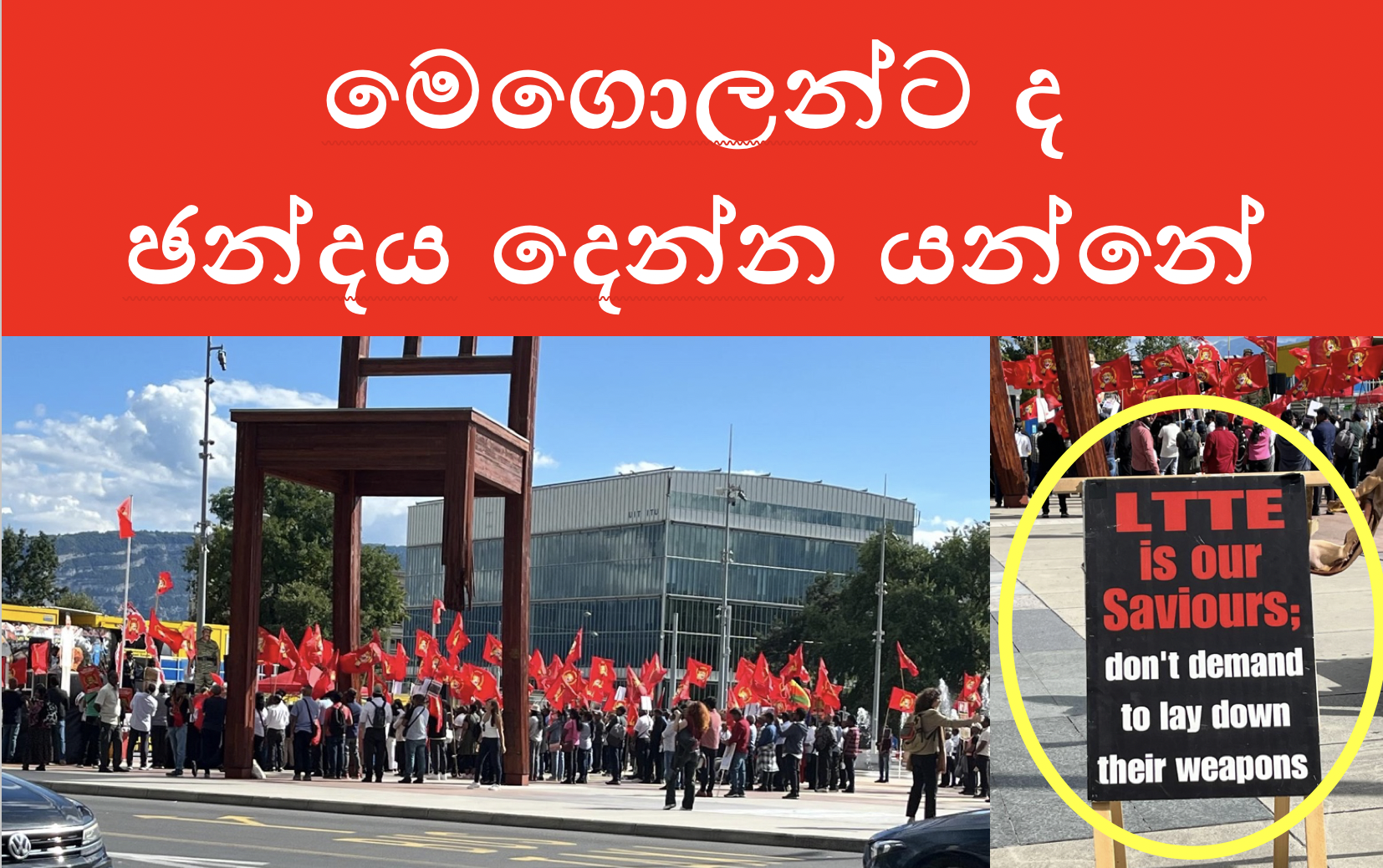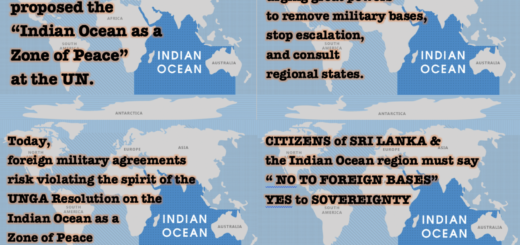South Asian Spring: Why Expats Should Not Get Digital Vote in Sri Lanka

The Government of Sri Lanka’s recent announcement on granting voting rights to expats is a gamble with sovereignty. Handing the ballot to millions who neither live under Sri Lanka’s laws, nor share its daily burdens, nor pay its taxes, opens the door to forces that are already destabilizing the State from abroad. The Asian youth-led regime change & placement of non-elected interim governments are lessons to learn.
The 2022–25 youth-led protests across Asia revealed how quickly external slogans, diaspora-funded campaigns, and foreign-backed narratives can capture the streets, culminating in regime change without elections and the installation of unelected interim leadership. What was tested on the ground then could now be institutionalized digitally through the expat vote. In the volatile South Asian region, where “springs” are engineered to topple governments, Sri Lanka cannot afford to hand its ballot box to external actors. What is the Govt thinking?
Who are Sri Lanka’s expats abroad?
If the government is considering giving voting rights to all expats, it must first confront the reality that overseas Sri Lankans are not a single, politically cohesive community concerned about Sri Lanka’s sovereignty. They fall into distinct and often conflicting categories:
- Professionals & Migrant Workers (Skilled and Unskilled)
Doctors, engineers, IT specialists, entrepreneurs, teachers, domestic workers, construction laborers, and others contribute to host economies while sending vital remittances home. Yet many are disconnected from Sri Lanka’s current realities or politically aware only through partisan lenses, making them ill-equipped to determine the country’s political future.
- Asylum Seekers & Refugees
Thousands left during the conflict claiming persecution or genocide to gain asylum. Their often exaggerated or fabricated narratives severely damaged Sri Lanka’s international reputation. Granting them votes would empower the same narratives that have undermined the state abroad.
- Diaspora Political Activists & LTTE Networks
The most dangerous bloc. LTTE-aligned groups abroad are well-organized, financially powerful, and politically influential in Western capitals. They lobby the UN, EU, and host governments against Sri Lanka, glorify the LTTE as “freedom fighters,” and stage high-profile protests. A handful even aspire to political office, believing media and money can achieve that goal. Giving them ballots hands enemies of the State direct influence over domestic governance.
- Dual Citizens & Their Families
Dual citizens maintain close ties with Sri Lanka, often visiting or returning to vote. Extending the franchise to their children — many of whom hold only foreign citizenship and have no lived connection to Sri Lanka — is problematic. Youth without firsthand experience of the country’s realities do not fully understand its challenges and are unlikely to offer informed solutions, making their participation in elections unwarranted.
- Second & Third Generation Diaspora
Many younger generations have never lived in Sri Lanka, barely speak its languages, and absorb distorted images through diaspora propaganda or foreign media distortions. If mobilized, they would vote not from experience or knowledge, but from narratives hostile to Sri Lanka’s national interest.
- Politically radicalized Sinhalese (former JVP sympathizers & insurrection fugitives)
Many Sinhalese left during or after the JVP insurrections of the 1970s–1980s, carrying strong ideological animosities toward mainstream political parties. Though dispersed globally, they remain politically active and ideologically rigid, making themsusceptible to influence from external actorsseeking to steer domestic change. Mobilizing this group could directly impact family networks and amplify destabilizing narratives in elections especially towards another Asian Spring.
Key Question:
Should those who do not live under Sri Lanka’s laws, do not pay taxes, and are unaffected by its policies have equal say in choosing its government?
Voting is not only a right — it is a duty bound to shared accountability, and expat ballots risk severing that link.
Diaspora Imbalance & Oversight Gaps
Sri Lanka’s diaspora is far from politically balanced:
Tamils Abroad (approx. 1.3 million):
Concentrated in Western countries, some hold full citizenship, while others may reside illegally. Granting voting rights to undocumented residents is preposterous and raises serious security concerns. Some could even be individuals previously reported as “missing” or “dead” in LTTE networks taking on alias identities, effectively giving hostile actors a backdoor into decision-making.
Many remain aligned — willingly or under pressure — with LTTE-linked separatist groups focused on undermining Sri Lanka’s sovereignty.
Sinhalese Abroad (approx. 1.1 million):
Largely in the Middle East, Asia-Pacific, and West, they send vital remittances. A smaller portion are skilled professionals in Western countries. Unlike the Tamil diaspora, however, Sinhalese are geographically dispersed, rarely forming networks capable of influencing host-country governments or mobilizing diaspora voting blocs. Their political impact abroad is limited.
The imbalance is clear:
Enfranchising all expats would not reflect the silent majority of Sri Lankans abroad but instead hand disproportionate power to the most organized and hostile anti-Sri Lanka factions — primarily LTTE networks in the West.
This is not democratic representation; it is erosion of sovereignty from outside.
What is the Government thinking?
Foreign Ideological Capture
The 2022–23 protests revealed how vulnerable Sri Lanka is to external influence.
Youth on the ground were mobilized through slogans, narratives, and even funding amplified by diaspora networks abroad. The outcome was not organic reform but the appointment of unelected individuals to interim government positions — a clear bypass of the democratic process.
Allowing expats to vote would institutionalize this interference, giving those who live outside Sri Lanka the power to dictate its political course while remaining insulated from its consequences.
This raises a critical question: is digital voting being tested on Sri Lanka as part of a wider geopolitical experiment in South Asia — a new “South Asian Spring” digitally engineered through diaspora manipulation?
Accountability Gap
Non-resident Sri Lankans do not pay taxes, obey domestic laws, or endure the economic hardships faced by citizens at home. Yet digital voting would allow them to shape policies and elect governments without bearing any responsibility for the outcomes. Democracy is not just a right — it is a duty intertwined with accountability. Extending the franchise to those detached from Sri Lanka’s realities severs this fundamental link.
Vulnerability to external manipulation – Tamil LTTE & Sinhala JVP radical expats voting dangers
Diaspora voting blocs are highly susceptible to influence from host countries, foreign NGOs, and ideological networks. LTTE-aligned groups in the West already operate as powerful lobbying machines, while politically radicalized Sinhalese expats — particularly many who fled after the JVP insurrections — carry deep partisan animosities and are ideologically easy to capture.
These individuals can be mobilized to push agendas that destabilize domestic politics, influencing family networks and voting patterns back home. Digital voting would hand both foreign and hostile domestic actors direct leverage over Sri Lanka’s governance.
What is the Government thinking?
Risks of Electoral Inaccuracy
Government records report roughly 2 million Sri Lankans living abroad, yet diaspora estimates suggest closer to 3 million, including undocumented migrants.
Without rigorous verification and an accurate census, incorporating expats into the electoral roll risks fraud, unverifiable ballots, and contested results, undermining trust in the electoral system.
Strategic Sovereignty at Stake
Granting expats digital voting could:
- Empower separatist diaspora networks with disproportionate influence.
- Allow foreign-backed ideologies and radicalized diaspora groups, including anti-national former JVP-aligned expats, to shape domestic governance.
- Institutionalize cycles of external mobilization leading to interim governments controlled beyond shores.
- Compromise the democratic principle – citizens will have no say in electing their representatives.
- Even end up making a LTTE head the President of Sri Lanka via a bogus interim-government. Examples of Iraq, Libya, Syria, Bangladesh and now Nepal shows us nothing is impossible.
Sri Lanka must prioritize foremost place to resident citizens & their democratic rights first. Expat engagement is valuable in cultural, economic, and educational spheres, but electoral power must remain grounded to those who live in Sri Lanka permanently. Voting is not merely a right; it is a responsibility. Only those who live under Sri Lanka’s laws, share its burdens, and face the consequences of governance should wield the decisive voice at the ballot box.
Shenali D Waduge







